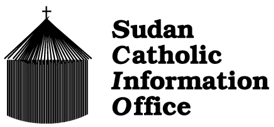Hilaya's glorious past is no more
At the heart of Sudan's Eastern Equatoria lies Hiyala Payam. Once a prosperous settlement, the region located about 130 kilometres east of Juba, today has little if anything that the local people can be proud of.
Education, health and all other essential services grounded to a near halt several years ago. Not even the people's spiritual needs can be said to be well taken care of.
It all began in 1988 when the area became the scene of a fierce battle between the government forces and the forces of the rebel Sudanese People's Liberation Army (SPLA). Caught in the crossfire, the surviving civilians had no alternative but to relocate to a safer area as refugees.
The SPLA emerged victorious and took control of Hiyala but the area remained a volatile war zone for close to a decade. It was not until last year that the local Lotuko people returned to their former homes, with the hope of reconstructing their shattered lives
The Payam has attracted a host of Non-Governmental Organisations (NGOs), which together with the Catholic Diocese of Torit, have the Herculean task of initiating as well as revitalising all manner of development projects.
The Diocese once had chapels all over the region, which, besides offering other pastoral services, celebrated mass once each month. Today, the local people's spiritual hunger is great. Not even catechists are easy to come by. The only .priest available resides at Ikotos, several kilometres from Hiyala.
The local people are worried about their future as they generally feel that unlike the other �liberated� areas, Hilaya is definitely not progressing at the right pace.
The people maintain that insecurity is not the reason for the stagnation as people can now move about villages such as Iloli, Ogurung, Tiragore, Mura, Olianga, Ilien and Boira without much fear.
But, like all other areas in southern Sudan, Hilaya is vulnerable to aerial attacks by the government forces. Many are the times that the Antonov planes have bombarded the area, killing and maiming several people.
Lack of religious instructors is particularly disturbing to the people of Hilaya. They wish to see many of their sons and daughters take positions of responsibility in the church as they believe their area is the heart of the Catholic Church in the entire Diocese of Torit
Hilaya has two schools, one primary and the other intermediate. However, both are in a state of disrepair. The school buildings' walls are still intact but the roofs went with the war and have been begging for replacement ever since. The handful of teachers in charge of the institutions are local volunteers who are poorly trained and ill-equipped for their responsibility.
One of the NGOs in the area, Norwegian Peoples' Aid (NPA) has made it clear to the local people that it will not repair the dilapidated buildings until the locals provide enough furniture for the schools. However, the Lotuko have so far been unable to rise to the challenge since they have been busy tending their farms. Like the rest of the southern Sudanese, the Lotuko have borne the brunt of the current famine and dread a repeat.
The nearest medical institution in the area is also located at Ikotos. But it can only deal with minor medical problems. More serious cases have to be referred to Chukudum, several kilometres away.
All in all, the people of Hilaya are happy to be home and only pray for better living conditions.
Augustine Okwahi
----------------------------------------------------------------------
SUDAN CATHOLIC INFORMATION OFFICE
Bethany House, P. O. Box 21202, Nairobi, Kenya
tel. +254.2.562247 or 569130, fax 566668
e-mail: [email protected]
----------------------------------------------------------------------
For further information, please contact:
Fr. Kizito, SCIO, tel +254.2.562247 - fax +254.2.566668 - e-mail: 
